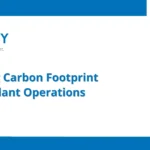In the ever-evolving landscape of the travel industry, effective management of customer relationships and operational workflows is crucial for success. Travel agencies have traditionally relied on management tools that handle various aspects of their operations. However, the emergence of Travel Customer Relationship Management (CRM) systems has transformed how agencies engage with clients and streamline processes. In this blog, we will explore the key differences between Travel CRM and traditional management tools, highlighting the benefits of adopting a CRM system for modern travel agencies.
Understanding Traditional Management Tools
Traditional management tools often encompass basic software solutions that assist travel agencies in managing bookings, itineraries, and customer information. These tools may include spreadsheets, generic project management software, and accounting systems. While they can help with basic tasks, they lack the comprehensive features needed to optimise customer relationships and enhance overall efficiency.
- Limited Functionality: Traditional management tools typically offer limited capabilities, focussing on specific tasks like booking management or financial tracking without integrating customer relationship features. This can lead to fragmented data and a disjointed understanding of customer needs.
- Manual Processes: Many traditional tools require manual data entry and updates, which can be time-consuming and prone to errors. Travel agents often find themselves juggling multiple platforms, making it challenging to maintain accurate records and respond promptly to customer enquiries.
- Lack of Personalisation: Traditional systems may not provide insights into customer preferences or behaviours, hindering the ability to personalise communication and offers. This lack of personalised engagement can result in missed opportunities for upselling and cross-selling.
What Makes Travel CRM Different?
Travel CRM systems are specifically designed to meet the unique needs of the travel industry, offering a suite of tools that empower agencies to manage customer relationships effectively. Here are the key features that differentiate Travel CRM from traditional management tools:
- Comprehensive Customer Insights: Travel CRM systems provide a centralised database that stores detailed customer profiles, including preferences, past bookings, and interactions. This enables agencies to tailor their services and marketing efforts, enhancing the customer experience.
- Automation of Processes: CRM solutions automate various tasks such as lead tracking, follow-ups, and communication. This automation reduces manual work, allowing agents to focus on building relationships rather than getting bogged down in administrative tasks.
- Integrated Communication Tools: Travel CRMs often include built-in communication tools that facilitate seamless interactions with clients. Whether through email, SMS, or social media, agencies can engage customers across multiple channels, ensuring timely and relevant communication.
- Analytics and Reporting: Unlike traditional tools, Travel CRM systems provide robust analytics and reporting features. Agencies can track performance metrics, analyse customer data, and gain insights into trends, helping them make data-driven decisions to improve their services.
- Enhanced Collaboration: Travel CRM platforms often enable team collaboration by providing shared access to customer data and workflows. This ensures that all team members are on the same page, improving coordination and efficiency within the agency.
- Scalability and Flexibility: As travel agencies grow, their needs evolve. Travel CRM systems are designed to scale with the business, accommodating increased data and more complex customer interactions without losing functionality.
Conclusion
While traditional management tools can assist with basic operational tasks, they fall short in fostering meaningful customer relationships and streamlining processes within travel agencies. Travel CRM systems offer a comprehensive solution that enhances customer engagement, automates workflows, and provides valuable insights into customer behaviour. By adopting a Travel CRM, agencies can transform their operations, improve client satisfaction, and ultimately drive growth in a competitive market.
In today’s travel industry, investing in a Travel CRM is not just a trend; it’s a necessity for agencies aiming to thrive in a digital-first world. As the industry continues to evolve, those leveraging CRM technology will be better positioned to meet the changing needs of travellers and stay ahead of the competition.





